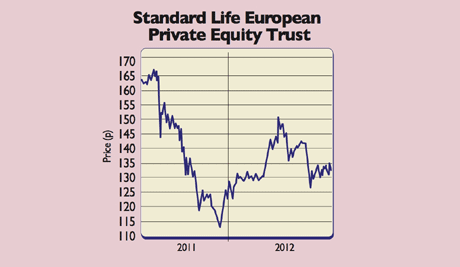
When American private-equity giant KKR bought British pharmacy Alliance Boots in 2007, the $11.7bn deal was Europe’s largest leveraged buy-out. Critics thought KKR would fail to make a decent return. But five years later KKR has proved the doubters wrong.
Last month it resold a chunk of Boots to an American pharmacy, almost tripling its original investment. While these mega deals are out of reach for most of us, there is a way that retail investors can get involved in the sector, via private-equity investment trusts (PEITs). But should you do so?
PEITs are listed companies that invest in unlisted firms. Some invest directly and buy holdings in private companies, while others reinvest your money in other private-equity funds. Their long-term record is pretty impressive. For example, over the last 15 years the average price of a PEIT has risen 230% compared to 123% for the FTSE All-Share, says Investors Chronicle.
In America, a recent study found that the average private-equity fund outperformed the S&P 500 by 20% to 27% over the life of the fund. However, those statistics hide some volatility.
Many funds borrowed heavily to buy stakes in other firms and got duly hammered when credit dried up a few years ago. As a result, a lot of PEITs look cheap now. Quite a few are trading at a 30% discount to the value of the assets they hold, says Leonora Walters in Investors Chronicle. That compares to a pre-crisis average discount of 5% to 10%.
In some ways the sell-off looks overdone. Many PEITs have improved their finances and paid off lots of debt. Moreover, the better ones have been able to take advantage of the downturn and falling asset prices to pick up distressed firms on the cheap. But a PEIT’s share price will only rise once investors are confident it can make a profit by selling on its assets – and in the current climate that’s pretty tough.
The initial public offering market is stalling and wasn’t helped by Facebook’s share price flop. Aim, the main market for small companies in Britain, has only seen £1.63bn of listings so far this year. That’s down on the £4bn total in 2011, which was itself a bad year. Meanwhile, Plus, a market for even smaller companies, announced its closure earlier this year.
So PEIT investing is probably best seen as something of a punt for the patient investor. If that sounds like you, then the Standard Life European Private Equity Trust (LSE: SEP) offers what Simon Elliot of Winterflood Securities calls “managed diversified exposure to the asset class” and a discount to net asset value of 42%.